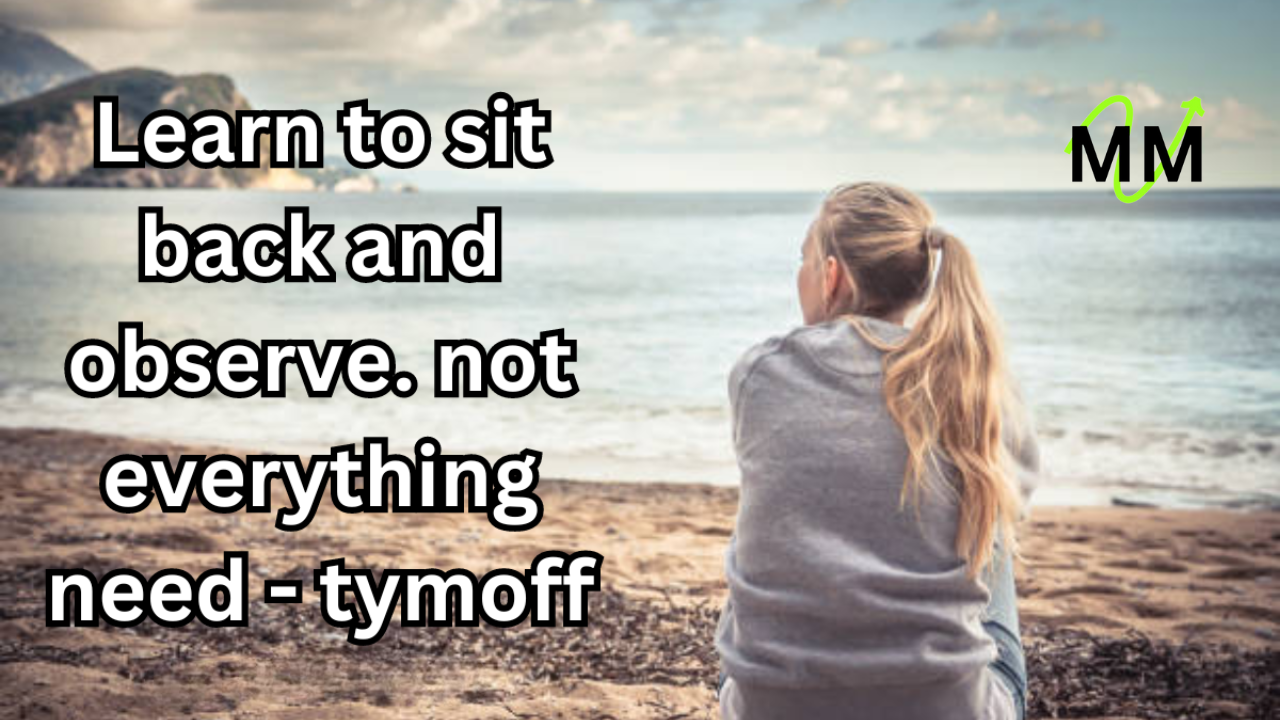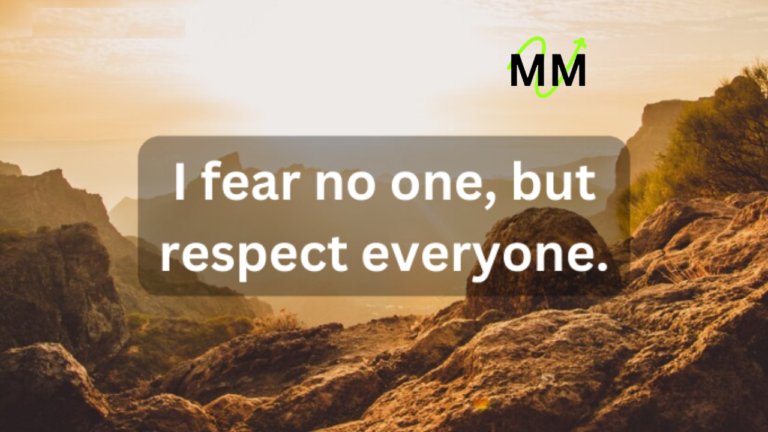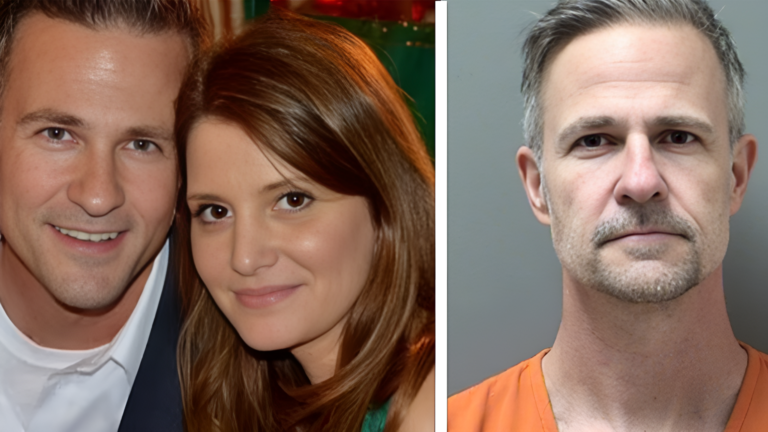Learn to Sit Back and Observe. Not Everything Need – Tymoff

In the fast-paced world we live in today, there is often an unspoken expectation that we must respond quickly to every situation, every message, and every event. However, this constant drive to react can leave us overwhelmed, stressed, and emotionally drained. It’s becoming increasingly important to cultivate the ability to sit back and observe without immediately reacting. This approach allows for deeper understanding, greater clarity, and, ultimately, wiser decisions. As the saying goes, “Not everything needs your reaction,” this principle can greatly benefit anyone willing to embrace it.
The Importance of Mindful Observation
Modern society often glorifies quick action. We are conditioned to believe that the faster we act or respond, the more competent or in control we appear. But in truth, rushing to react can lead to impulsive decisions, unnecessary conflict, and emotional turmoil. Learning to sit back and observe allows us to step out of this endless cycle of reactive behavior and instead respond in more thoughtful and effective ways.
When we step back to observe, we allow ourselves the time and space to absorb a situation fully. This pause can reveal hidden truths, clarify, and help us see the bigger picture. In a way, mindful observation is about choosing wisdom over immediacy. It’s about recognizing that not every problem must be solved immediately, and not every action requires a counteraction.
Slowing Down in a Fast-Paced World
The pace of modern life seems to be accelerating by the day. With the rise of technology and social media, we are inundated with information, opinions, and stimuli that demand our attention. This can create a sense of urgency to react to everything we encounter — a news article, a social media post, or a personal interaction.
However, slowing down is essential to preserving our mental and emotional well-being. By taking a moment to sit back and observe, we can avoid being reactive to everything around us. We can be more intentional about what we engage with and how we respond. Observing first allows us to process information more thoroughly, making our actions more meaningful and measured.
Emotional Regulation Through Observation
Emotions are powerful forces that often drive our reactions. When we feel anger, frustration, or anxiety, it can be difficult to sit back and observe the situation without jumping to conclusions or taking immediate action. However, observing our emotions before reacting is key to emotional regulation. By doing so, we can prevent ourselves from making impulsive decisions that we might later regret.
Sitting back and observing doesn’t mean suppressing your emotions or ignoring them. Rather, it involves acknowledging your feelings without letting them control your behavior. This practice allows you to process emotions more healthily and reflect on the situation from a more balanced perspective. This can lead to more constructive and effective responses rather than knee-jerk reactions driven by intense emotions.
Avoiding Overreaction in Personal Relationships
Personal relationships can be a significant source of emotional triggers, and reacting impulsively in the heat of the moment is easy. Whether it’s a disagreement with a friend, tension with a family member, or conflict in a professional setting, sitting back and observing can greatly improve communication and relationship dynamics.
Choosing When to Engage
Not every comment, action, or behavior requires a response. This is a hard truth to accept, especially in close relationships where emotions run high, and conflicts are often personal. However, when we sit back and observe before reacting, we allow ourselves to understand the full scope of a situation. Is the person trying to hurt us, or are they having a bad day? Is it worth engaging in a heated argument, or would a calm conversation later yield better results?
Choosing when to engage creates a buffer between the stimulus (what someone says or does) and your response. This space allows for greater emotional control and enables you to respond from a place of thoughtfulness rather than defensiveness.
Read More
Dealing with Conflict
Conflict is inevitable, but how we approach it can make all the difference in the outcome. Sitting back and observing before reacting in moments of conflict can prevent unnecessary escalation. Often, people respond to the moment’s emotion rather than the actual issue at hand. This can lead to arguments spiraling out of control, with both parties focusing more on winning the argument than resolving the issue.
When you take the time to observe, you allow yourself to assess the situation from multiple angles. You can better understand the other person’s motivations and your emotional triggers. Doing so makes you more likely to find common ground and resolve conflicts peacefully and constructively.
Decision-Making: The Power of Pausing
Every day, we face decisions — some big, some small. In many cases, the impulse to act quickly can lead to choices we later regret. Sitting back and observing before making a decision is an invaluable skill that can help ensure that your preferences are aligned with your values and long-term goals.
Benefits of a Calm and Measured Response
A calm, measured response is often far more powerful than a hasty, reactive one. When we take the time to observe, we gather more information, consider different perspectives, and weigh the potential outcomes of our choices. This process allows for more informed decision-making, leading to better results.
Impulsive decisions, on the other hand, are often driven by temporary emotions or incomplete information. These decisions may solve a problem in the short term, but they can create new problems down the line. By sitting back and observing, you increase the likelihood of making decisions that are effective in the moment and beneficial in the long term.
Real-Life Applications
There are countless real-life scenarios where learning to sit back and observe can lead to better outcomes. For example, rushing to react to a colleague’s criticism can create tension and hurt your professional relationships. However, by reflecting on the feedback and observing the situation, you may realize that the criticism is constructive and can help you grow in your role.
In social situations, impulsively jumping into a conversation or argument can cause misunderstandings and hurt feelings. But by observing the group dynamics and listening to others before speaking, you can contribute more meaningfully and avoid unnecessary conflict.
Cultivating a Practice of Observing
Learning to sit back and observe is not something that happens overnight. It requires practice and patience. However, there are several techniques you can use to develop this valuable skill.
Developing Self-Awareness
Self-awareness is the foundation of mindful observation. By becoming more aware of your thoughts, emotions, and reactions, you can better control how you respond to different situations. Practices such as mindfulness meditation, journaling, and self-reflection can help you develop greater self-awareness and make it easier to sit back and observe.
Building Patience
Patience is another key aspect of learning to observe without reacting. Patience can feel like a rare and undervalued skill in a world that values instant gratification. However, by practicing patience, you can become more comfortable with the discomfort of waiting and observing rather than immediately reacting.
Read More
Conclusion
Learning to sit back and observe is a powerful skill in a world that encourages constant action and reaction. It allows you to process situations more fully, respond more thoughtfully, and make better decisions. By embracing the philosophy that “not everything needs your reaction,” you can reduce stress, improve relationships, and lead a more intentional and fulfilling life.
Sitting back and observing doesn’t mean inaction. Rather, it means consciously choosing to act from a place of wisdom and clarity rather than impulse. Ultimately, this approach can lead to more peaceful and meaningful experiences in all areas of life.






